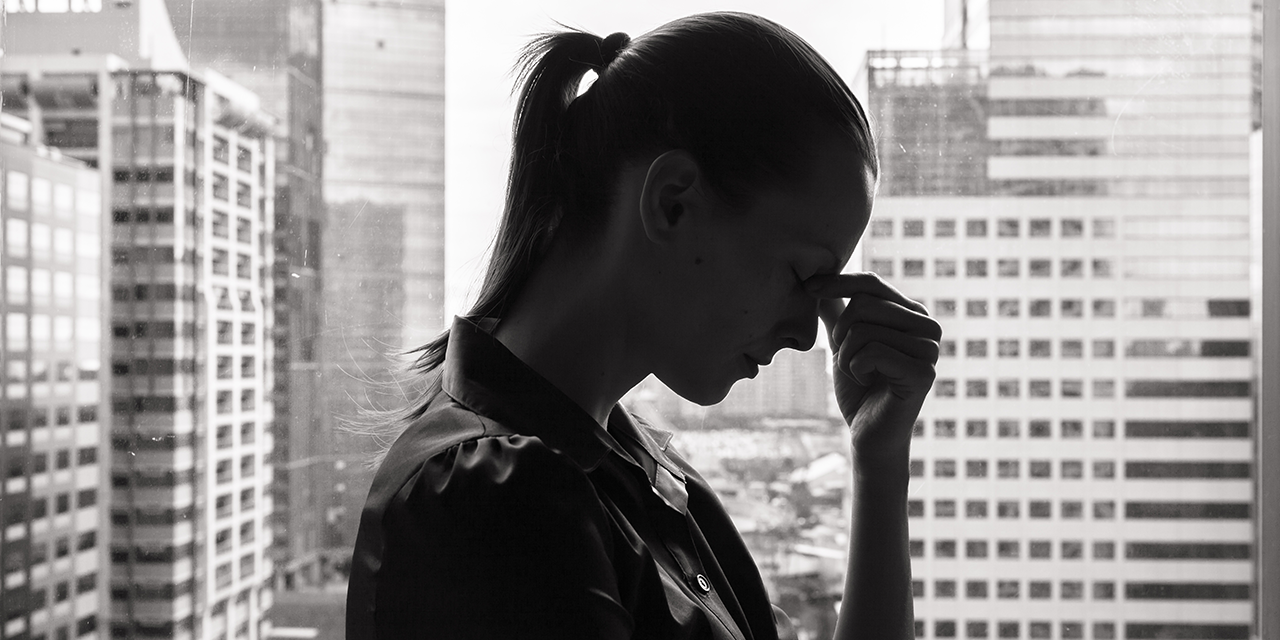Tension type headaches

Tension type headaches are the most common type of headaches; they are also called stress headaches.
The pain seen with tension type headaches are felt like vice-squeezing, tight bands around the forehead, pressure and tension, or like a weight on top of the head. They are usually bilateral. The pain starts from behind the neck and head and spreads to the neck, temples and eyes. Daily activities do not increase the severity of pain. They may occur once in a while, frequently or on a daily basis. Tension type headaches are more commonly seen in women.
The tension headache pain may be confused with migraine and sometimes it will not be possible to distinguish them from one another.
Tension headaches usually do not cause vomiting whereas mild nausea can occur. Throbbing does not accompany the pain. Sensitivity to light and sound can be seen, but it is not as bad as in migraine headaches. Usually there is an overlap of tension type headaches and migraine pain. Tension headaches can sometimes initiate migraine attacks. In some patients it may not be possible to distinguish between the two types of pain.
The pain can last between 30 minutes to 7 days.
Patients often have insomnia and sleep problems. Tension type headaches are more likely to be seen in women with post traumatic stress disorder with accompanying depression and depressive symptoms.
The cause of tension type headaches is not clear, it is assumed that there is a sensitization of pain pathways in the central nervous system, increased central pain perception, serotonin metabolism dysfunction and tension in the jaw and neck muscles.
Patients often have insomnia and sleep problems. Tension type headaches are more likely to be seen in women with post traumatic stress disorder with accompanying depression and depressive symptoms.
The cause of tension type headaches is not clear, it is assumed that there is a sensitization of pain pathways in the central nervous system, increased central pain perception, serotonin metabolism dysfunction and tension in the jaw and neck muscles.
Tension type headache triggers:
- Sleep disorders, insomnia, missing sleep
- Anxiety
- Depression
- Stress
- Fibromyalgia
- Neck pain
- Jaw (temporo-mandibular) problems, tooth clenching (bruxism)
- Office work, sitting at the desk for long hours
- Looking at a computer screen for extended periods
- Driving for long hours
- Postural disorders (bad posture)
- Eye fatigue
- Using too many painkillers too often
- Drinking a lot of coffee
- Smoking
- Frequent alcohol consumption
- Cold weather
- Air-conditioned environments
- Working indoors for long hours
- Sick building syndrome
- Muscle tension/ stiffness
How to prevent tension type headaches
- Drink plenty of water
- Observe sleep hygiene
- Take a warm shower/bath
- Slow down
- Simplify life
- Reduce daily workload and chores
- Try not to control everybody and everything
- Learn how to cope with stress
- Think positively
- Stay with the moment
- Socialize
- Learn how to meditate
- Learn how to breathe diaphragmatically
- Sit ergonomically at your desk
- Feet, ankles and lower legs at 90 degrees
- Arms on armrest
- Straight back
- Open shoulders
- Computer screen at eye level
- Lower back support from chair
- Elbows at a higher angle/position to keyboard
- Take hourly breaks while working
- Correct your posture
- Do posture and neck exercises
- Get a full body massage
- Get treatment for bruxism
- Get treatment for myofascial pain, fibromyalgia
- Get treatment for migraine
- Watch your migraine triggers
- Get treatment for leaky gut
- Practice yoga
- Take Pilates classes
- Exercise daily
- Eat healthy
- Gluten free
- Dairy free
- Additive free
- Omega 3 and unsaturated fat high foods rich
- Stop smoking
- Reduce caffeine intake
- Take vitamins if deficient
- Seek professional psychological help
- Take magnesium before bedtime
- Try acupuncture

